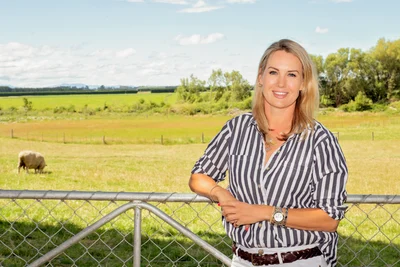International Women's Day: Nicola Grigg

Nicola Grigg, Minister for State of Trade, Associate Agriculture (Horticulture) and Women
- Why is so important for women to hold leadership positions in the primary industry?
Women’s representation in leadership is always a positive thing, particularly for the primary industry – but leadership comes in many forms, across many platforms. Farming couples will know it is increasingly the woman in the relationship who shoulders the burden of leadership. Throughout my life, I’ve so often come across highly qualified, highly capable women on-farm who invariably describe their role as ‘just doing the books’. In reality though, that often means they’re the accountant, the auditor, the HR manager, the legal advisor, the farm environment planner, the nutrient budgeter, the stock agent liaison, the business development manager, the calf (and child!) rearer, the cook, the cleaner etc etc! As International Women’s Day approaches, I encourage anyone who knows one of these maestros to acknowledge and celebrate them.
The breakthrough successes across the wider sector are a biproduct of innovation and adaptation, which women in leadership positions often facilitate. More than this, female leaders across the primary industry serve as role models for younger women and girls who can learn and grow from the triumphs of others. My motivation for entering politics was to bring a rural woman’s voice to Parliament to ensure this perspective is considered across a range of policies and initiatives. As the recently-appointed Minister for Women, Minister of State for Trade, and Associate Minister for Agriculture, I’m thrilled to now be in a position to influence positive change. Women bring a different perspective to problem solving and can navigate through challenging situations with efficiency, rationality and, importantly, we do this collaboratively. If my role serves to motivate more women to enter politics or leadership roles, then I will consider that a huge success.
2. What obstacles are there for women in agricultural roles, and how can we remove those obstacles?
There are many systematic and societal barriers that affect women attaining (and retaining) leadership roles in the primary industry – as there are in politics too - including financial, educational, and gender-based obstacles. The leadership role women play in raising a family is one such barrier. As a new mother myself, I am navigating the demands of being a first-time mum and Minister of the Crown, as well as an electoral MP. While all three of these roles are nothing but an enormous privilege, they are, at times, utterly exhausting! The support of partners, family, political colleagues and, of course, other women who’ve ‘been there’ cannot be underestimated for people like me to manage. Powerful woman who overcome obstacles create pathways for those that follow – and I am lucky to be able to follow in the footsteps of other rural, female MPS such as Ruth Richardson and Dame Jenny Shipley who’ve managed the juggle. Each year there are more opportunities that arise within the primary industry where woman can thrive, and the sector can succeed, but this will only eventuate by women being supported and empowered to capitalise on the chances at hand, and by taking risks.
3. What advice would have for women who are wanting to rise through the ranks, and advance their career in agriculture?
It is an exciting time for the primary industry, and for women involved in – what I view as – New Zealand’s most exciting industry. As I’ve already noted, it is important to always have a support network around you. Make the most of those who can act as your mentor because many women who have acquired a leadership position, have benefitted from mentorship, and understand the value of providing this to others. Have trust in yourself to lean into things that are outside of your comfort zone and, above all, do not be deterred by perceived failures, but rather, see them as learnings.
